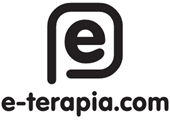La terapia cognitiva-conductual (CBT) es la forma más
ampliamente estudiado de la psicoterapia para el trastorno depresivo mayor. (1,2) Los metaanálisis de ensayos controlados han establecido que, a
través de 12-16 semanas de tratamiento, la eficacia de la TCC es comparable a la medicación
antidepresiva, (3-5) con un menor riesgo de recaída después del tratamiento se
detiene. (6,7) CBT también puede mejorar significativamente los resultados del
tratamiento cuando se usa en combinación con la farmacoterapia, (8,9), a pesar de estas justificaciones convincentes,
existen barreras importantes que limitan el uso de la TCC en la práctica
contemporánea.
Uno de los obstáculos es que no hay suficientes terapeutas
entrenados, particularmente en centros de salud mental rurales y públicos. (12)
Otro pertenece al costo de la terapia. Una tercera barrera es el resultado de
las molestias y el tiempo involucrado en la programación y asistir a un gran
número de sesiones durante un período de tres a cuatro meses.
Si, la terapia conductual cognitiva asistida por ordenador es
efectiva (CCBT) podría ayudar a hacer frente a todas estas limitaciones. (14) A
pesar de que la primera forma de CCBT se introdujo hace más de 20 años, (15,16) la investigación y desarrollo se ha disparado en el última década, sobre todo
porque a los programas multimedia más sofisticados se puede acceder ahora a
través de Internet, tales como los de www.amindterapia.com,
los primeros programas de psicoterapia asististida por ordenador disponibles en
Español, los metaanálisis de una literatura
de investigación floreciente han documentado la eficacia de estos diversos
modelos de CCBT. (20-24)
References
1. American
Psychiatric Association. Practice guideline for the treatment of patients with
major depressive disorder, Third edition, Arlington, VA. [Available at
http://www.guideline.gov/content.aspx?id=24158. Accessed November 27, 2016.]
2. Parikh
SV, Quilty LC, Ravitz P, et al. Canadian Network for Mood and Anxiety Treatments
(CANMAT) 2016 Clinical Guidelines for the Management of Adults with Major
Depressive Disorder: Section 2. Psychological Treatments. Can J Psychiatry.
2016;61(9):524-539.
3. Cuijpers
P, Berking M, Andersson G, Quigley L, Kleiboer A, Dobson KS. A meta-analysis of
cognitive-behavioural therapy for adult depression, alone and in comparison
with other treatments. Can J Psychiatry. 2013;58(7):376-385
4. Cuijpers
P, van Straten A, van Oppen P, Andersson G. Are psychological and pharmacologic
interventions equally effective in the treatment of adult depressive disorders?
A meta-analysis of comparative studies. J Clin Psychiatry.
2008;69(11):1675-1685.
5. Weitz
ES, Hollon SD, Twisk J, et al. Baseline Depression Severity as Moderator of
Depression Outcomes Between Cognitive Behavioral Therapy vs Pharmacotherapy: An
Individual Patient Data Meta-analysis. JAMA Psychiatry. 2015;72(11):1102-1109.
6. Vittengl
JR, Clark LA, Dunn TW, Jarrett RB. Reducing relapse and recurrence in unipolar
depression: a comparative meta-analysis of cognitive-behavioral therapy's
effects. J Consult Clin Psychol. 2007;75(3):475-488.
7.
Biesheuvel-Leliefeld KE, Kok GD, Bockting CL, et al. Effectiveness of
psychological interventions in preventing recurrence of depressive disorder:
meta-analysis and meta-regression. J Affect Disord. 2015;174:400-410.
8. Cuijpers
P, Sijbrandij M, Koole SL, Andersson G, Beekman AT, Reynolds CF III. Adding
psychotherapy to antidepressant medication in depression and anxiety disorders:
a meta-analysis. World Psychiatry. 2014;13(1):56-67.
9.
Karyotaki E, Smit Y, Holdt Henningsen K, et al. Combining pharmacotherapy and
psychotherapy or monotherapy for major depression? A meta-analysis on the
long-term effects. J Affect Disord. 2016;194:144-152.
10. Hollon
SD, DeRubeis RJ, Fawcett J, et al. Effect of cognitive therapy with antidepressant
medications vs antidepressants alone on the rate of recovery in major
depressive disorder: a randomized clinical trial. JAMA Psychiatry.
2014;71(10):1157-1164.
11. Wiles
N, Thomas L, Abel A, et al. Cognitive behavioural therapy as an adjunct to
pharmacotherapy for primary care based patients with treatment resistant
depression: results of the CoBalT randomised controlled trial. Lancet.
2013;381(9880):375-384.
12.
Kaltenthaler E, Sutcliffe P, Parry G, Beverley C, Rees A, Ferriter M. The acceptability
to patients of computerized cognitive behaviour therapy for depression: a
systematic review. Psychol Med. 2008;38(11):1521-1530.
13. Marcus
SC, Olfson. National trends in the treatment for depression from 1998 to 2007.
Arch Gen Psychiatry. 2010;67(12):1265-1273.
14. Eells
TD, Barrett MS, Wright JH, Thase ME. Computer-assisted cognitive-behavior
therapy for depression. Psychotherapy. 2014;51(2):191-197.
15. Griest
JH. Computer interviews for depression management. J Clin Psychiatry.
1998;59(suppl 16):20-42.
16. Wright
JH, Wright A. Computer assisted psychotherapy. J Psychother Pract Res.
1997;6(4):315-329.
17. Beating
the Blues™ US – Helping you to manage your emotional well-being.
http://beatingthebluesus.com/ Accessed November 27, 2016.
18. MoodGYM
training program. https://moodgym.anu.edu.au/welcome Accessed November 27,
2016.
19. Empower
interactive. Good Days Ahead.
http://www.empower-interactive.com/solutions/good-days-ahead/ Accessed November
27, 2016.
20.
Andersson G, Topooco N, Havik O, Nordgreen T. Internet-supported versus
face-to-face cognitive behavior therapy for depression. Expert Rev Neurother.
2016; 16(1):55-60.
21.
Richards D, Richardson T. Computer-based psychological treatments for
depression: a systematic review and meta-analysis. Clin Psychol Rev.
2012;32(4):329-342.
22. Arnberg
FK, Linton SJ, Hultcrantz M, Heintz E, Jonsson U. Internet-delivered
psychological treatments for mood and anxiety disorders: a systematic review of
their efficacy, safety, and cost-effectiveness. PLoS One. 2014;9(5):e98118.
23. So M,
Yamaguchi S, Hashimoto S, et al. Is computerized CBT really helpful for adult
depression? A meta-analytic re-evaluation of CCBT for adult depression in terms
of clinical implementation and methodological validity. BMC Psychiatry.
2013;13:113.
24.
Rozental A, Magnusson K, Boettcher J, Andersson G, Carlbring P. For better or
worse: an individual patient data meta-analysis of deterioration among
participants receiving internet-based cognitive behavior therapy. J Consult
Clin Psychol. 2016. [Epub ahead of print 10.1037/ccp0000158].
25. Gilbody
S, Littlewood E, Hewitt C, et al. Computerised cognitive behavior therapy
(cCBT) as treatment for depression in primary care (REEACT trial): large scale
pragmatic randomized controlled trial. BMJ. 2015;351:h5627.
26. Wright
JH, Wright AS, Salmon P, et al. Development and initial testing of a multimedia
program for computer-assisted cognitive therapy. Am J Psychother.
2002;56(1):76-86.
27. Kim DR,
Hantsoo L, Thase ME, Sammel M, Epperson CN. Computer-assisted cognitive
behavioral therapy for pregnant women with major depressive disorder. J
Womens Health (Larchmt). 2014;23(10):842-848.
28. Wright
JH, Wright AS, Albano AM, et al. Computer-assisted cognitive therapy for
depression: maintaining efficacy while reducing therapist time. Am J
Psychiatry. 2005;162(6):1158-1164


No hay comentarios:
Publicar un comentario